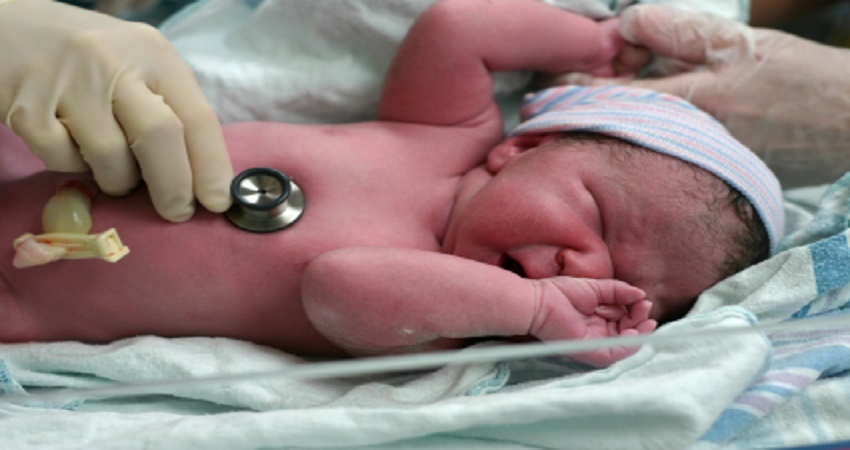Medical Matters

Medical Matters Overview
This section deals with medical matters in relation to pregnancy and why abortion is not necessary to help a woman through a difficult pregnancy.
Basically,
- Abortion is never necessary to solve complications in pregnancy
- Some rare conditions may require inducing the premature delivery of the child to save the mother’s life, after which all efforts will be made to keep the child alive
- Abortion is not a necessary part of the treatment of cancer in pregnant women
- Abortion is not necessary to prevent a woman with an unwanted pregnancy from committing suicide
Dr. Berry Kiely, paediatrician, discusses the proper medical perspective in dealing with the two patients in a pregnancy and achieving the best possible outcome for both.
Abortion to save the mother's life is a smokescreen
Very telling is a quote from a practicing abortionist, Dr. Don Sloan. When Sloan wrote his book “Choice: a Doctor’s Experience with the Abortion Dilemma” in 2002, he had already performed over 20,000 abortions. He said:
"If a woman with a serious illness- heart disease, say, or diabetes- gets pregnant, the abortion procedure may be as dangerous for her as going through pregnancy … with diseases like lupus, multiple sclerosis, even breast cancer, the chance that pregnancy will make the disease worse is no greater that the chance that the disease will either stay the same or improve.
And medical technology has advanced to a point where even women with diabetes and kidney disease can be seen through a pregnancy safely by a doctor who knows what he’s doing. We’ve come a long way since my mother’s time….The idea of abortion to save the mothers’ life is something that people cling to because it sounds noble and pure- but medically speaking, it probably doesn’t exist. It’s a real stretch of our thinking.” (1)Dr. Sloan is of the opinion that abortion is never necessary to save a woman’s life at any time in pregnancy. He believes that “life of the mother” argument is a smoke screen, a useful argument, but not based on fact. It is true that in some cases, pregnancy can complicate illness, but even this abortion provider admits that in most cases, a competent doctor can see a woman through even the most difficult pregnancy.
1. Don Sloan, M.D. and Paula Hartz. Choice: A Doctor’s Experience with the Abortion Dilemma. New York: International Publishers 2002 P 45-46
A 2014 Study has revealed differences of up to 100% of maternal deaths among global reports and official figures from a number of countries of the American continent. Considering the women’s education level may significantly improve the estimates.
The 5th Millennium Development Goal proposed by the United Nations (UN) is aimed to decrease maternal mortality by 75% before 2015. One year away from the deadline to achieve this goal, several global reports monitoring progress in maternal health in UN member countries have been published.Most reports use mathematical models to estimate maternal mortality for each country, which is an indicator used for direct comparison to evaluate progress in maternal health. A new study by researchers at the MELISA Institute compared maternal mortality values informed in three global reports with figures obtained from official data from eight countries with reliable vital statistics in the Americas, including the United States, Mexico and Chile.The research, published in the British journal Public Health, reveals that two recent global reports show discrepancies between 14% and 100% when compared with official maternal mortality figures from the countries evaluated. In contrast, a third independent report, conducted by researchers from the Institute for Health Metrics and Evaluation (IHME), University of Washington, published in The Lancet was considerably more accurate. According to this new study by Koch et al., considering the women’s education level may significantly increase the accuracy of the estimates. In fact, the utilization of this variable in the global report by the IHME apparently increased the accuracy of maternal death estimates.
Read more from The Melisa Institute...
Links and Info
- Death as a result of infection during miscarriage rate - Dr Muiris Houston in the Irish Times
- Medical teams focus first on pregnant woman's health, obstetricians say
- Professor and Senator John Crowne, oncologist, speaking on Newstalk
- Key issue will be whether doctors followed guidelines
- Dr Berry Kiely on Morning Ireland
- Abortion and Mental Health - A psychiatrist's experience
- We'd rather quit medicine than perform an abortion
- Dr. Eoghan de Faoite with Dr Peter Boylan on Newstalk's Coleman at Large